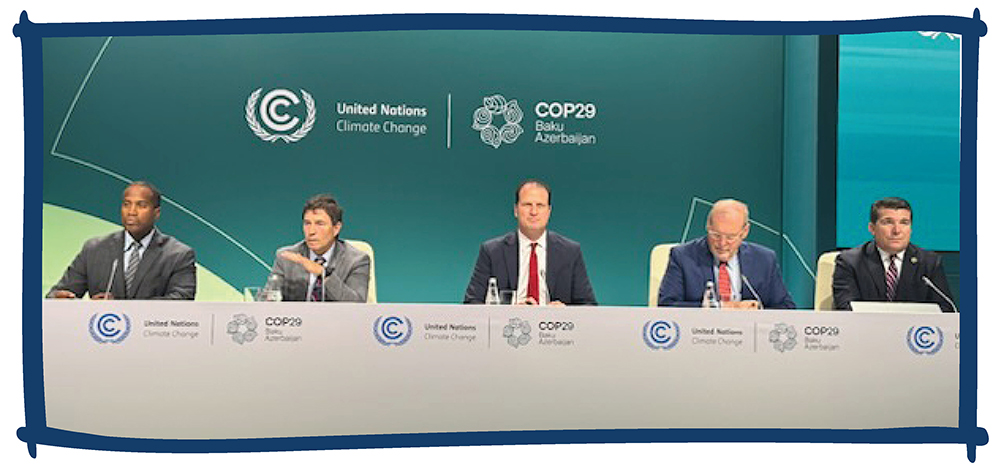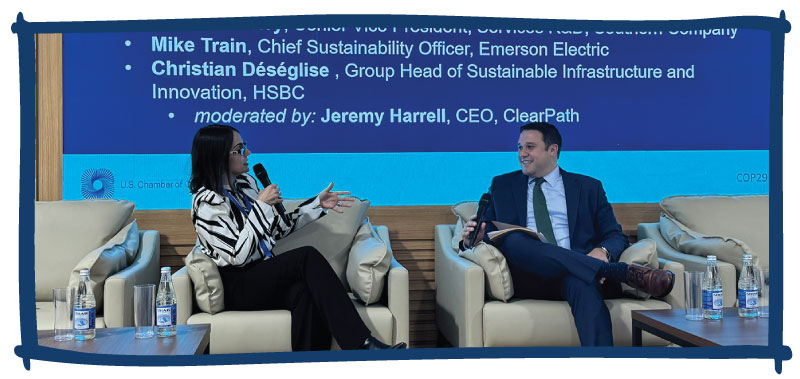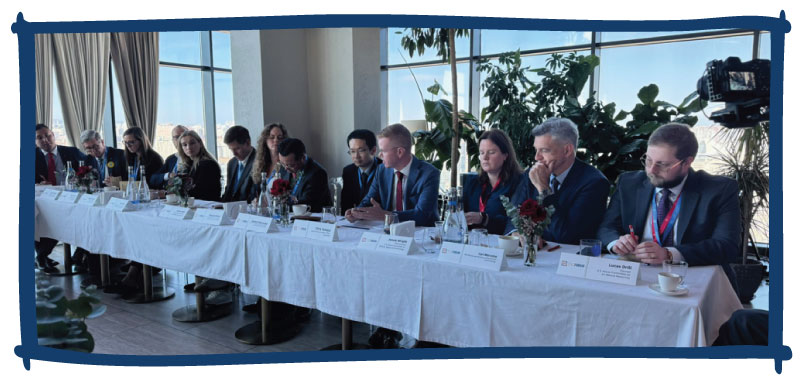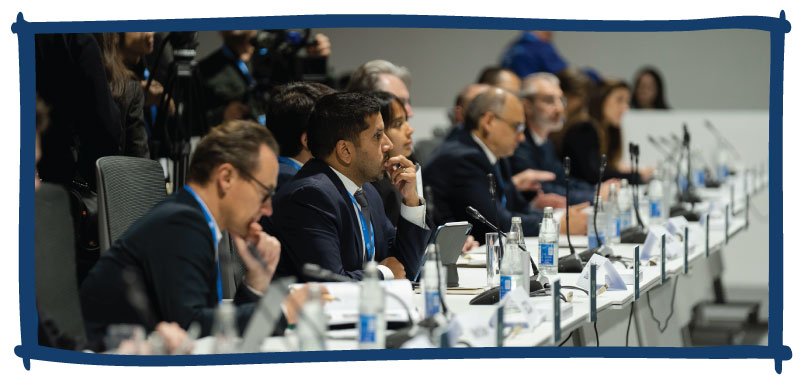Posted on November 21, 2024 by Jeremy Harrell and Savita Bowman
This year’s UN Climate Change Conference, known as COP29, took place in Baku, Azerbaijan and was positioned as the “Climate Finance COP.” Notably, an official House Energy and Commerce bipartisan delegation, led by Rep. August Pfluger (R-TX), attended the conference. Five House Republicans including Reps. John James (R-MI), Jay Obernolte (R-CA), Morgan Griffith (R-VA), and Troy Balderson (R-OH), held a press conference and highlighted the importance of American leadership in clean innovative solutions to reduce global emissions without sacrificing economic development or national security. They discussed the need for increased clean energy innovation technologies like carbon capture, utilization and storage (CCUS), nuclear, fusion and more. Watch their full press conference here.

L to R: Rep. John James (R-MI), Rep. Troy Balderson (R-OH), Rep. August Pfluger (R-TX), Rep. Morgan Griffith (R-VA), Rep. Jay Obernolte (R-CA)
This year’s conference convened tens of thousands to continue the vital work of advancing innovation to reduce global emissions. ClearPath CEO Jeremy Harrell discussed American financing tools to lead a global scale-up of low-carbon solutions with the U.S. Development Finance Corporation’s (DFC) Chief Climate Officer, Anna Shpitsberg, during a fireside chat hosted by the U.S. Chamber of Commerce. Highlights included DFC’s leadership in global clean energy deployment through a record year of lending more than $12B across more than 180 transactions in 2024 and the recent ~$1 billion letter of interest (LOI) with Poland to build Westinghouse Electric Company AP1000 nuclear reactors. Jeremy continued the conversation with U.S.-based private sector leaders from Southern Company, Emerson and HSBC on recent momentum in private sector clean energy finance, the clean manufacturing supply chain and power sector decarbonization.

L to R: Anna Shpitsberg, U.S. Development Finance Corporation; Jeremy Harrell, ClearPath
Energy security remained a central theme at COP29, with many stakeholders advocating for a balanced, all-of-the-above approach. They emphasized technologies that can provide 24/7 clean, firm power like nuclear, carbon capture and storage. Diverse solutions are essential for meeting both economic and environmental goals, and this year, industry showcased a number of commitments to clean energy projects, emphasizing the need for a resilient energy mix, including emerging technologies like hydrogen and small modular reactors (SMRs).
At COP29, nuclear and carbon management received significant attention, reaffirming the global commitment to scaling up clean, firm power as a critical pathway for reaching net-zero goals. This included six more countries joining the declaration to triple nuclear energy by 2050. Industry leaders are focused on long-term strategies, knowing that these technologies will progress and that America has the opportunity to lead global emissions reduction through optimized private and public financial mechanisms.

Chris Tomassi joined a CRES Forum roundtable to highlight the need for new nuclear.
ClearPath also partnered with the Conservative Climate Foundation (CCF) to discuss the potential of CCUS in reducing global emissions—especially for difficult-to-decarbonize sectors like cement, steel and petrochemicals. Harrell moderated a panel featuring Dr. Mark Berry, Senior Vice President of Research & Development and Environment at Southern Company and Roger Martella, Chief Sustainability Officer at GE Vernova. The panel explored how CCUS technologies must abate one billion tons of CO2 by 2030 and six billion tons by 2050, as outlined in the 2023 IEA Roadmap to Net Zero. Discussions focused on the economic opportunities, regulatory pathways forward, and scenarios for scaling CCUS in the power and industrial sectors while emphasizing the need for innovation, policy support and streamlined permitting to overcome barriers. Panelists emphasized the importance of bipartisan support for advancing CCUS technology, reflecting a growing conservative leadership role in pragmatic climate action.

Savita Bowman, ClearPath, at the COP29 Ministerial on Carbon Management
COP29 served as an important reminder of the U.S.’ role as a global leader in clean innovation. The bipartisan American delegation emphasized the need for all-of-the-above, market-driven solutions. This approach resonates with allies and partners alike, who recognize the U.S. as not only a driver of technological innovation but also a steadfast partner in international efforts to reduce global emissions.
Conservatives are leading on solutions to unleash clean, affordable, reliable power, and at COP29, ClearPath helped bolster this message. By actively engaging with domestic and international partners, ClearPath continues to champion solutions to bridge the gap between today’s technologies and tomorrow’s climate ambitions. COP29 illustrated that smart policy, private sector innovation and cross-party collaboration can address the climate challenge while upholding economic growth and energy security for future generations.
